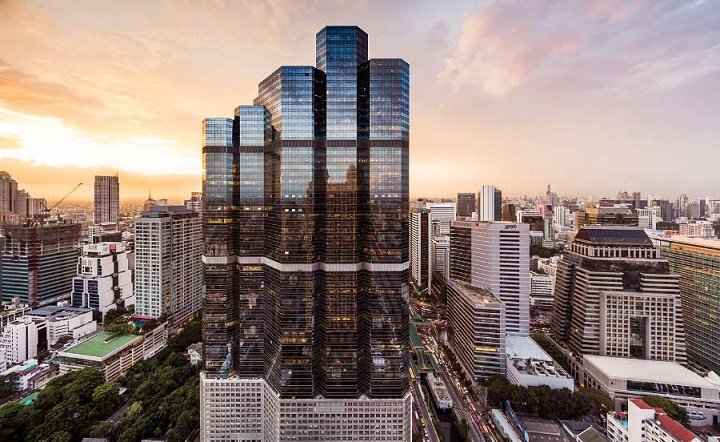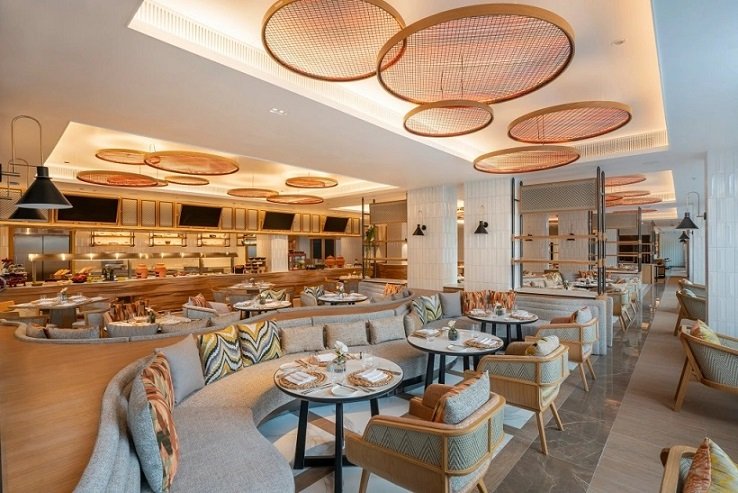Key points
- According to this Thailand Hotel News report, the bank expects Asset World’s five-year growth strategy to slow earnings-per-share (EPS) expansion from 2025 to 2027 as the firm grapples with pre-opening costs, higher capital expenditures, and negative EBITDA during early operational phases of new properties.
- For AWC and others, the coming years will define whether they can turn scale into sustainable success or be caught in a cycle of costly overcapacity.
- For the latest on the hotel market in Thailand, keep on logging to Thailand Hotel News.
Thailand Hotel News: Bangkok’s Hospitality Sector Under Pressure
Bangkok’s once-vibrant hotel industry continues to face mounting headwinds, and the latest signal comes from global investment bank UBS, which downgraded Asset World Corp PCL (AWC) from “Neutral” to “Sell.” The downgrade stems from growing concern over the capital’s soft RevPAR (Revenue per Available Room) outlook, as hotel occupancy and room rates continue to struggle despite Thailand’s steady tourism numbers.

UBS downgrades AWC amid Bangkok’s worsening hotel outlook and weak RevPAR growth, signaling deeper challenges for Thailand’s capital hospitality sector.
Image Credit: AWC
UBS also reduced AWC’s price target from THB2.10 to THB1.90, citing that the company’s aggressive expansion plans and increased interest expenses will likely weigh heavily on earnings. According to this Thailand Hotel News report, the bank expects Asset World’s five-year growth strategy to slow earnings-per-share (EPS) expansion from 2025 to 2027 as the firm grapples with pre-opening costs, higher capital expenditures, and negative EBITDA during early operational phases of new properties.
A Tough Market for Bangkok Hotels
While AWC continues to roll out new luxury and lifestyle properties under global brands, the overall Bangkok hotel market remains oversaturated. Average daily rates and occupancy levels have not returned to pre-pandemic highs, and an influx of new hotels is placing further downward pressure on profitability. Tourism arrivals have improved, but spending per tourist remains low, and competition from newer midscale and budget properties has intensified.
Analysts also highlighted that AWC’s current valuation—trading at around 32 times its projected 2026 PE ratio—is significantly higher than its sector peers, which average between 15 and 20 times. This suggests that the stock remains overvalued relative to the broader hospitality industry, especially given the city’s sluggish hotel recovery.

Hotels in Bangkok are bracing for the worse in coming months
Image Credit: AWC
Debt and Expansion Challenges
UBS noted that Asset World’s debt levels remain a key concern. Its net debt to EBITDA ratio is projected to remain high at around 12.5 times in 2026, only easing to 9.5 times by 2029 if its expansion unfolds as planned. Although revaluation gains on freehold assets help support its balance sheet, the company’s interest-bearing debt to equity remains significant at 0.8 times.
Bangkok’s hotel developers have increasingly turned to debt-financed expansion in the hope of capturing long-term tourism growth. However, with global interest rates remaining elevated and visitor numbers still below expectations, many operators face the same challenge—maintaining profitability while servicing debt in a flat-rate environment.
Signs of a Broader Industry Slowdown
Industry experts warn that the city’s hospitality market may not recover its full vibrancy until 2026 or beyond. The combination of rising operational costs, weak corporate travel, and growing competition from regional markets like Ho Chi Minh City and Kuala Lumpur is putting pressure on room revenues. Some smaller boutique properties have already begun discounting heavily just to maintain occupancy, while luxury operators face rising wage and utility costs that eat into margins.
Despite Thailand’s tourism ministry forecasting stronger arrivals in the coming quarters, most hotel owners remain cautious. The focus has shifted from expansion to sustainability—streamlining costs, improving guest experiences, and diversifying revenue streams beyond rooms, such as through dining, wellness, and events.
Bangkok’s Hotel Market Outlook
As Bangkok’s hotel landscape evolves, major players like AWC will need to navigate a delicate balance between growth ambitions and financial prudence. The next two years will test whether the capital’s hotel sector can adapt to changing traveler behavior and an increasingly competitive regional environment. Without strategic cost management and differentiated branding, profitability could remain elusive for many large operators.
The ongoing pressures in Bangkok’s hotel sector reflect a broader pattern—rapid expansion, high debt, and slow yield recovery. For AWC and others, the coming years will define whether they can turn scale into sustainable success or be caught in a cycle of costly overcapacity.
For the latest on the hotel market in Thailand, keep on logging to Thailand Hotel News.

